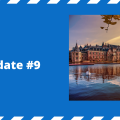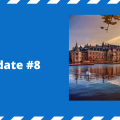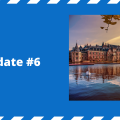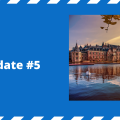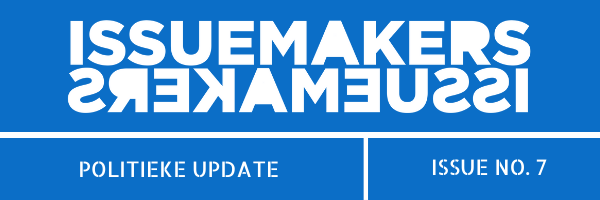
The elections are getting closer, only 2 weeks to go and politics dominates the news. Every week, Sybrig van Keep briefly describes new developments: think of insights, highlighted events or interesting passages from party programs. In this way we would like to keep you informed of the latest news and interesting developments!
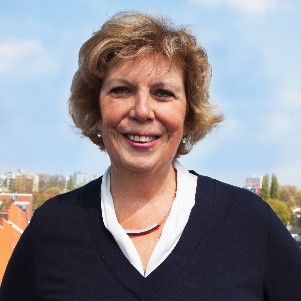
Election debates
The elections are getting closer. The new House will be approved on March 17 and they will take office for the first time on March 23. Many, many debates take place in the run-up to the elections.
- There was one before radio debate from the NOS. Thirteen party leaders debated about healthcare, housing, safety and the climate. Rutte was attacked hard by Baudet, the corona policy and the settlement of damage in Groningen from the earthquakes would damage confidence in the government. Rutte then again accused Baudet of wrongly sowing doubt about the reliability of the elections. Marijnissen, Klaver and Den Haan (50PLUS) agreed: more money should be spent on healthcare, to reduce the workload and increase the salary. However, there were different views on the role of health insurers. With regard to the climate, Wilders indicates that the problems are exaggerated. Nuclear energy also turned out to be a possible option for D66. After all, almost all parties want to abolish the loan system. The atmosphere of the debate was substantive and sometimes spicy, such as the moment when Hoekstra accuses Rutte of telling myths when the VVD states that cuts may not be necessary.
- It RTL election debate on Sunday evening there was a spirited debate with sometimes violent clashes between party leaders. Also striking were the conversations with citizens, who asked questions to specific party leaders. For example, a victim of the benefits affair made it very difficult for Rutte with her penetrating comment that she was being abandoned. Another striking moment was the discussion between Kaag and Wilders because of his comment about Zwarte Piet, who was allowed to become Minister of Culture in his cabinet. Finally, all parties agreed that the highest incomes in the Netherlands should pay more taxes.
- We look forward to the one-on-one debate on NPO1 on March 8, 9, 10 and 11, and of course the final debate on March 16. The schedule of the debates is included below.
CPB calculation
The largest parties have had their election manifestos calculated by the CPB. Only the PVV, PvdD and FvD did not do this. Most parties want government spending to increase over the next four years. For the VVD and CDA, this means that government debt exceeds 60 percent of GDP, which is not allowed under EU rules. The other parties remain below. The purchasing power of the citizen is increasing. The election manifestos of most parties lead to economic growth. Ten parties have opted for an increase in the burden on companies, but the extent varies enormously. For example, the SGP and VVD have increased costs by 3.5 billion euros and the PvdA by almost 42 billion euros.
Political information
- The DENK board has decided that the external investigation that the members requested into the power struggle within the party and Kuzu's affair is not necessary.
- D66 has completed the external investigation into unsafe situations for female employees and concluded that there are no indications of inappropriate behavior by the D66 strategist.
- The House of Representatives sees no possibilities to investigate the accusations of PVV MP Dion Graus. Wilders remains behind Graus.
- A VVD candidate showed last week that he is at home in all markets: Eelco Heinen, twelfth on the VVD candidate list, was on his way to the hospital on the night of Wednesday to Thursday for the delivery of his second child, when the baby had already presented itself and he had to help his wife give birth on the side of the road.
Politicians on TikTok
Since there are no live meetings for the elections, politicians have to look for other channels. Do they make more use of social media?
Although the newest social platform does not allow political advertisements, political parties appear to be embracing TikTok en masse in their election campaigns. We have already seen in previous political campaigns that parties use platforms such as Facebook, Instagram and Twitter to reach voters, and TikTok seems to have added an additional medium. And that is not surprising, because with 1.7 million users in the Netherlands (an increase of 149% in 2020) and an average daily use of sixty minutes, TikTok is a major digital marketplace. There is dancing on TikTok, but social topics are also discussed. Examples include racism, climate change and hatred against LGBTQIA+ people. Are the Dutch political parties responding to this in the current election campaign? You can read more about that in this blog.
Polls: what are the latest updates?
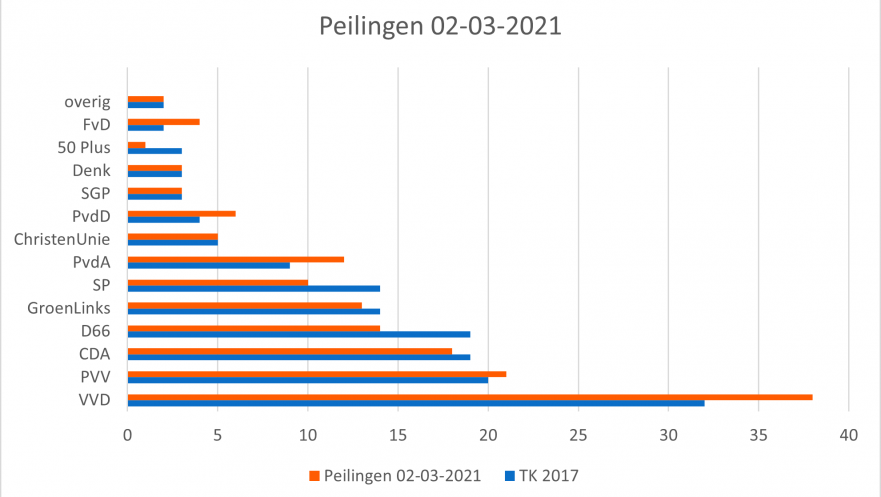
In the orange bar you can see the latest polls (March 2, 2021). The blue bar shows the current distribution of seats in the House of Representatives. Compared to the February 16 polls, there are a number of changes. PVV, CDA, D66, CU, PvdD have all dropped 1 seat compared to two weeks ago. GroenLinks has increased by 2 seats, while SGP, DENK, Forum for Democracy and the other parties have all increased by 1 seat compared to February 16. There are no changes for VVD, SP, PvdA and 50PLUs.
Source: Eenvandaag via Frontbencher.nl

Joost Eerdmans
(#1 Candidate List Yes21)
Born: January 9, 1971, Harderwijk
residence: Rotterdam
Course: Public Administration, Erasmus University Rotterdam
Functions: member of the House of Representatives of the States General (2002-2006)
Group chairman Group-Eerdmans/Van Schijndel, House of Representatives of the States General (2006)
Alderman (for safety, outdoor space, animal welfare and administrative innovation) of Rotterdam, (2014-2018)
Member of Rotterdam City Council (2018-present)

Ernst Boutkan
(#3 Candidate List Volt)
Born: 1996
residence: Rotterdam
Course: Governance and Economics and Cultural Anthropology
Functions: Member of the Volt Policy core team (2019-present)
Owner SES Studiehuis (2019-2020)

Jeanette Chedda
(#4 Candidate List BIJ1)
Born: 1984
residence: The Hague
Course: Media and Journalism, Erasmus University Rotterdam
Functions: Ambassador, Care4BrittleBones (2014-present)
Advisor Chater Finance (2018-present)
Web editor, SEO specialist (2020-present)

Esther van Fenema
(#1 Candidate List NLBeter)
Born: 1970, Haarlem
residence: Bussum
Course: General medicine, Utrecht University and Conservatory
Functions: Psychiatrist (2008-present)
Columnist Volkskrant and Medisch Contact
NLBeter party leader (2019-present)
- March 3, 8:00 PM: Feminist (m/f/x) is looking for a party. What are the relevant considerations when deciding who to vote for?
- March 3, 6:00 PM: NL Kiest and EduCaution: what can the elections mean for it education
- 4th of March: The Green election debate: conversation between young people and politicians about the election manifestos
- March 7th: Womens March Netherlands
- 8 March: International Women's Day debate (Women INC)
- March 8, 7:30 PM: The large healthcare debate from KNMG about the future of healthcare
- 8 March: Lice tractor debate about gender equality – Radio Nieuws BV
- 9th of March: Eenvandaag publishes seat poll
- March 9, 7:30 PM National Religion Debate: 'religion, climate and climate religion'
- March 9: 6:30 PM FemCity and NL chooses: Election debate equal in the Netherlands
- March 9, 8:30 PM: NL Chooses: the young one climate-conscious voter on move
- March 14, 7:00 PM NOS Youth news election debate
- March 15/16: polling stations open early for House of Representatives elections
- March 15, 6:15 PM An election debate today on NPO1
- March 16: Eenvandaag publishes final poll for elections
- 17th of March: Elections
- March 19: Oh oh The Hague: the afterthought. What will the House of Representatives look like in the coming years and what does that mean for the Netherlands?
At communications consultancy Issuemakers we advise and support organizations that have or want to make a social impact. We do this by monitoring, managing and creating social and political issues for them. Our advice, campaigns, lobbying processes and strategies incorporate various disciplines, such as: Public Relations, Public Affairs, Stakeholder management, Reputation management, Corporate Communication and Crisis communication.


